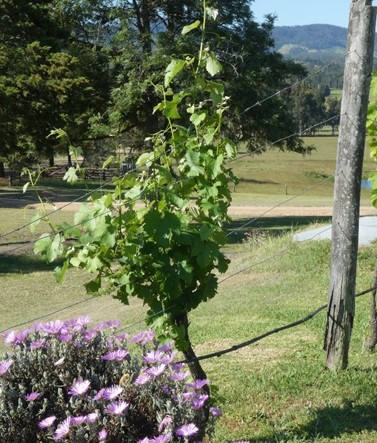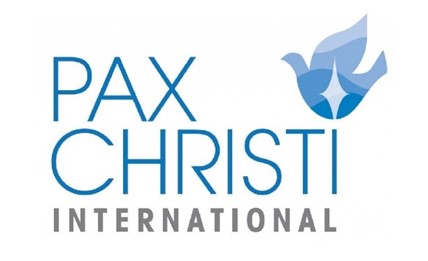In preparing for our diocesan synod, the Diocesan Synod Working Party has been talking about the invitation to be a synodal church and the call to discernment. One of the phrases we use is “to listen with the ear of the heart”. So now our invitation is to listen with the ear of the heart, so as to be enlightened by the eyes of our heart.
 On Saturday, a group of about twenty went on a ‘road trip’ organised by one of the young people involved in the Pastoral Placement Program. As part of the program, the young people are invited to create a project and Lachlan, one of the young men in the program, created a “Water to Wine Day Trip”. I went along as part of the pilot group, enjoying lunch at Forster, praying with the group on the beach, spending the afternoon at a winery in Krambach, followed by Mass at St Bernadette’s, Krambach and then finishing the day with dinner at the Krambach Hotel. It was a very relaxed and social day out.
On Saturday, a group of about twenty went on a ‘road trip’ organised by one of the young people involved in the Pastoral Placement Program. As part of the program, the young people are invited to create a project and Lachlan, one of the young men in the program, created a “Water to Wine Day Trip”. I went along as part of the pilot group, enjoying lunch at Forster, praying with the group on the beach, spending the afternoon at a winery in Krambach, followed by Mass at St Bernadette’s, Krambach and then finishing the day with dinner at the Krambach Hotel. It was a very relaxed and social day out.
You may be wondering the overall purpose of Lachlan’s project and why the pilot experience. Lachlan hopes that parishes may take up the opportunity to be provided with the outline of the ‘day trip’ and then to invite their parishioners and friends along for a social opportunity which has prayer, reflection and Eucharist embedded into the experience, hence the play on words in the naming of the day.
The intergenerational pilot group enjoyed the pace and the invitation to look out for small miracles. Everyone enjoyed the day away from the city and just being with each other. Before we ate lunch, Lachlan led us in our grace, in a busy restaurant, beginning and ending with the Sign of the Cross. On the beach we prayed and reflected on the scripture passage, as people wandered past. There was an excitement with the young people about gathering for Mass with Fr Terry Horne at St Bernadette’s.
This was truly a spiritual day, and as I reflect back on the day in light of our weekend readings, I think of our gospel from Matthew (22:1-14) in which the king invites people to his son’s wedding feast. Many who are invited refuse to come, but I witnessed the willingness of these young people to accept the invitation to be at the table of the Lord, to go out as servants to the cross-roads, and to extend an invitation to others to come to the feast. It is obvious to me that these young people are excited in being called to be servants of the Lord, and I am blest to witness the joy it gives them. They are keen for others to be given this gift of faith, life and hope.
As I listened to these words from Isaiah (25:6-10) proclaimed from the first reading at Krambach, I could not but feel the presence of the Holy Spirit with us. For those of you who are unaware, Krambach is a village perched high up on the Bucketts Way.
On this mountain,
the Lord of hosts will prepare for all people
a banquet of rich food, a banquet of fine wines,
a food rich and juicy, of fine strained wines. ………
We exult and we rejoice
that he has saved us;
for the hand of the Lord
rests on this mountain.
I hope I have given you a sense of the sacredness of this day, and that the gift the young people of the Pastoral Placement Program are to us in our diocese.
I also indicated last week that I wished to focus this week’s message on the International Day of Nonviolence (2 October) as we mark the beginning of anti-poverty week.
 Pax Christi International is a Catholic peace movement with 120 member organisations worldwide that promotes peace, respect of human rights, justice and reconciliation throughout the world. Grounded in the belief that peace is possible, and that vicious cycles of violence and injustice can be broken, Pax Christi International addresses the root causes and destructive consequences of violent conflict and war.
Pax Christi International is a Catholic peace movement with 120 member organisations worldwide that promotes peace, respect of human rights, justice and reconciliation throughout the world. Grounded in the belief that peace is possible, and that vicious cycles of violence and injustice can be broken, Pax Christi International addresses the root causes and destructive consequences of violent conflict and war.
I have spoken of the formation I have encountered in this nonviolence movement, and share some words with you from the Pax Christi International/Catholic Nonviolence Initiative Reflections gathered during the workshop on Path of Nonviolence: Towards a Culture of Peace 4-5 April 2019, in Rome. As Christians committed to faithfully following in the footsteps of Jesus, we are called to take a clear stand for active nonviolence and against all forms of violence. This nonviolent movement seeks to promote integral human development and cultures of peace through active nonviolence.
Just peace is the goal, nonviolence is the way. A sustainable culture of peace can only be established by nonviolence that absolutely respects human dignity. Rooted in the interconnectedness of God’s creation, it also opens the way to an “integral ecology,” as expressed by Pope Francis in Laudato si’. Violence undermines this interconnectedness. Nonviolence sustains it. Nonviolence teaches us to say “no” to an inhuman social order and “yes” to the fullness of life. This is a spiritual reality, but also a practical truth. ……..
This commitment to nonviolence is formed of compassion and nourished by Eucharist, enabling a nonviolent encounter with the broken heart of God. Through him we discover and apply concrete ways to embrace nonviolence as a core teaching of our faith; to resist violence without violence; to put the power of love into action; and to develop the virtue of nonviolent peacemaking. ……
 In every age, the Holy Spirit graces the Church with the wisdom to respond to the challenges of its time. In response to what is a global epidemic of violence, we are being called again and again to invoke, pray over, teach, and take decisive action in the spirit of Jesus’ nonviolence. Nonviolence is at the heart of the Gospel. It is the calling of the Church. It is not passive or naïve. It is a way of faith and action. It is an effective alternative. It is a constructive force to protect all people and our common home. It includes a broad spectrum of approaches and activities. It is the core of a new moral framework. It is essential to integral human development and at the heart of a culture of peace. It is at the core of the witness and action of Jesus and many who have come after him, including Saints Francis and Clare of Assisi, Mohandas Gandhi, Martin Luther King Jr, Dorothy Day, Beatus Franz Jägerstätter, Saint Oscar Romero, Berta Caceres, Lanza del Vasto, Wangari Muta Maathai, and the many people involved in nonviolent social movements.
In every age, the Holy Spirit graces the Church with the wisdom to respond to the challenges of its time. In response to what is a global epidemic of violence, we are being called again and again to invoke, pray over, teach, and take decisive action in the spirit of Jesus’ nonviolence. Nonviolence is at the heart of the Gospel. It is the calling of the Church. It is not passive or naïve. It is a way of faith and action. It is an effective alternative. It is a constructive force to protect all people and our common home. It includes a broad spectrum of approaches and activities. It is the core of a new moral framework. It is essential to integral human development and at the heart of a culture of peace. It is at the core of the witness and action of Jesus and many who have come after him, including Saints Francis and Clare of Assisi, Mohandas Gandhi, Martin Luther King Jr, Dorothy Day, Beatus Franz Jägerstätter, Saint Oscar Romero, Berta Caceres, Lanza del Vasto, Wangari Muta Maathai, and the many people involved in nonviolent social movements.
In a violent world, nonviolence nurtures hope. Actively embracing the way of nonviolence can renew the Church and invite the entire world to discover the powerful hope of creative nonviolent solutions to the monumental challenges of our time.
Do we dare to even imagine that we, in the Diocese of Maitland-Newcastle, have the capacity, courage, desire and energy to go out into the ‘highways and byways’ and invite people into the graces we have been granted? Our young people are deserving of our faith and action.

